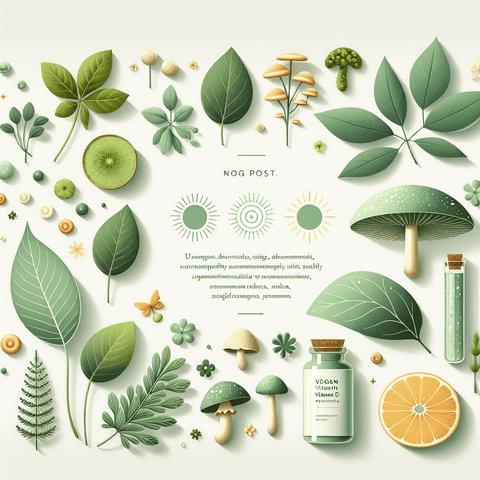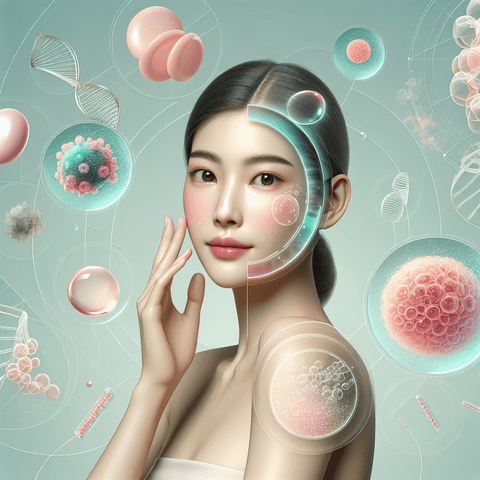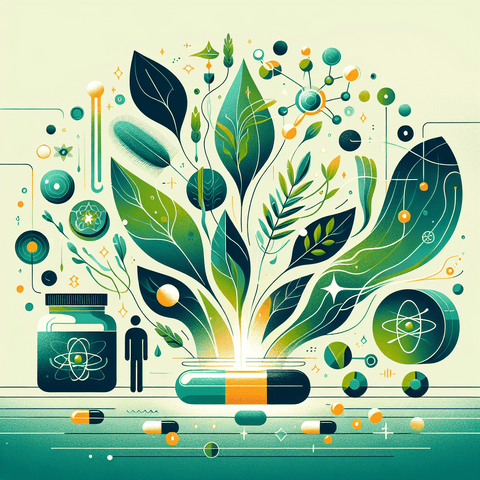Introduction: Understanding the Importance of Vegan Vitamin D3 in Nutritional Supplements
Vitamin D3, scientifically known as cholecalciferol, plays a pivotal role in maintaining multiple aspects of our health. It is a vital nutrient responsible for supporting immune function, promoting healthy bone development, aiding muscle function, and contributing to overall well-being. Traditionally, vitamin D3 has been sourced from animal products such as lanolin from sheep’s wool or fish oil, making it inaccessible for those adhering to vegan lifestyles. As the awareness and adoption of plant-based diets continue to rise globally, the demand for vegan-friendly nutritional supplements, including vitamin D3, has significantly increased.
In recent years, the wellness industry has responded by developing plant-based alternatives that enable vegans and vegetarians to meet their vitamin D requirements without compromising their ethical beliefs. These plant-based options are not only aligned with ethical considerations but also offer potential health and environmental benefits. The purpose of this comprehensive guide is to explore the best plant-based sources of vegan vitamin D3, understand its vital benefits, and learn how to incorporate it into a balanced lifestyle. Whether you're a dedicated vegan, exploring plant-based nutrition, or simply interested in optimizing your health naturally, understanding the secrets of vegan vitamin D3 is essential for making informed choices.
The Essentials of Vegan Vitamin D3: Why It Matters in Nutritional Supplements
Vitamin D3, or cholecalciferol, is often associated with traditional animal-derived sources because of its natural occurrence in these origins. It is synthesized in the skin upon exposure to sunlight, specifically ultraviolet B (UVB) rays, which triggers a natural production mechanism in humans and animals alike. In the natural environment, vitamin D3 is abundant in fatty fish, liver, egg yolks, and other animal-based foods. However, for those following vegan or vegetarian diets, obtaining sufficient vitamin D3 exclusively through diet can be challenging due to the limited presence of this vitamin in plant foods.
Vegan vitamin D3 is crucial because, without it, individuals risk deficiencies that can impact bone health, immune responses, and overall vitality. Adequate vitamin D levels help facilitate calcium absorption in the gut, which is essential for maintaining strong bones and preventing conditions like osteoporosis. Moreover, vitamin D plays a regulatory role in immune system modulation, potentially reducing susceptibility to infections and supporting overall immune resilience.
Common challenges faced by plant-based individuals include limited natural dietary sources and limited sun exposure, especially in regions with less sunlight or during winter seasons. Supplements, particularly vegan vitamin D3, have become an essential tool to bridge this nutritional gap. When taken consistently, vegan D3 supplements can support bone mineralization, immune health, mood regulation, and metabolic functions. Recognizing the importance of vegan-certified D3 helps individuals align their health goals with their ethical lifestyle choices, ensuring they do not compromise on health while adhering to cruelty-free principles.
Plant-Based D3: Exploring Natural Vegan Sources of Vitamin D3 in Nutritional Supplements
The breakthrough in vegan vitamin D3 availability lies in its plant-based origins, notably derived from lichen—an organism composed of fungi and algae that thrive in various environments. Lichen-derived vitamin D3 is a natural, sustainable, and cruelty-free source that mimics the same bioactive form of vitamin D3 produced in animal skin when exposed to sunlight. This makes it an ideal choice for vegans seeking an effective supplement that aligns with their ethical values.
Compared to traditional animal-derived vitamin D3 sources like lanolin or fish oils, plant-based D3 from lichen undergoes a process to extract, refine, and incorporate into supplement formulations. Recently, numerous reputable brands, such as Topvitamine, have introduced vegan D3 capsules and drops formulated from lichen that guarantee purity, potency, and safety. The extraction process ensures that the final product remains free from contaminants commonly associated with animal sources and aligns with sustainability goals by utilizing renewable resources.
When selecting a plant-based D3 supplement, it is essential to consider factors such as bioavailability, dosage, and quality assurance. Trustworthy brands often provide certificates of testing for potency and purity, ensuring that consumers receive a product that delivers on its promised benefits. Many top brands now feature vegan vitamin D3 products on their labels, making it easier than ever to adopt a cruelty-free approach to maintaining optimal vitamin D levels. For instance, exploring options all in one place, like the categories on Topvitamine, can streamline the selection process and help build a supplement routine that fits individual needs.
Vegetarian Vitamin D Sources: Incorporating More Nutritional Options in Your Diet
While plant-based supplements like lichen-derived D3 are indispensable for vegans, vegetarians and flexitarians can also benefit from dietary sources that contain or are fortified with vitamin D. Some of the naturally occurring vegetarian sources include mushrooms exposed to ultraviolet light, fortified plant-based beverages, cereals, and certain algae-derived products. Mushrooms such as maitake and UV-exposed portobello have been shown to contain significant amounts of vitamin D2, which can support overall vitamin D status when combined with D3.
Fortified plant-based milk alternatives (almond, soy, oat, and rice milks) and breakfast cereals often contain added vitamin D, making them convenient dietary sources. Additionally, certain types of algae are rich in vitamin D, acting as a plant-based alternative to fish oils and offering unique nutritional profiles. Incorporating these foods into your diet can help support baseline vitamin D levels, especially in conjunction with sun exposure and supplementation.
However, relying solely on dietary sources might not be sufficient for everyone, particularly in areas with low sunlight, during winter months, or for individuals with limited outdoor activities. The natural variability in vitamin D content in foods means that supplementation remains a practical and reliable method for reaching optimal levels. Combining dietary sources with vegan vitamin D3 supplements ensures comprehensive coverage, helping prevent deficiency and support long-term health.
Vegan Friendly Sunlight Alternatives: Strategies for Natural Vitamin D Synthesis Without Animal Products
Sunlight exposure remains one of the most natural and efficient ways for body synthesis of vitamin D3. When UVB rays reach the skin, a cholesterol precursor, 7-dehydrocholesterol, is converted into pre-vitamin D3, which further transforms into active vitamin D3. This process is universally effective but depends on factors such as geographic location, time of year, skin pigmentation, age, and lifestyle habits.
For vegans living in less sunny climates or with limited outdoor activity, relying solely on sun exposure may not be practical or sufficient. In such cases, UVB lamps designed specifically for vitamin D production can serve as a safe and controlled alternative. These devices emit UVB radiation within safe limits and can be used indoors to stimulate natural vitamin D synthesis without exposure to harmful ultraviolet rays or skin damage.
Practicing safe sun exposure—such as spending around 10-30 minutes outdoors during peak sunlight hours without sunscreen—can support natural vitamin D production, especially during the sunnier months. However, due to variable exposure levels and further limitations, supplementation often remains the most consistent approach to maintaining adequate vitamin D levels year-round. Combining safe sunlight exposure with vegan vitamin D3 supplements offers a comprehensive strategy to optimize vitamin D status, especially for those in regions with shorter daylight hours or during winter.
Plant-Derived Vitamin D3 Benefits: Why Choosing Plant-Based Sources Enhances Your Health
Research indicates that plant-based D3 sourced from lichen is an effective alternative to animal-derived D3 in maintaining healthy vitamin D levels. Studies have shown that vegan vitamin D3 performs similarly in elevating serum vitamin D concentrations, making it a reliable option for those committed to cruelty-free living. Its bioavailability and effectiveness in supporting bone health, immune function, and overall well-being are comparable to traditional D3 sources.
Opting for plant-derived D3 not only supports personal health but also offers several advantages concerning allergenicity and purity. Vegan D3 is free from common allergens associated with fish or animal products and reduces the risk of contaminants such as heavy metals or microbial toxins often found in fish oils. Additionally, the cultivation of lichen minimizes environmental impact, making it a more sustainable choice. This aligns with the broader ethical and ecological goals of many consumers seeking products that are both effective and environmentally responsible.
While some skeptics question whether plant-based D3 is as potent as animal-derived options, scientific evidence affirms its efficacy. Properly processed lichen-derived D3 guarantees bioavailability, ensuring that consumers receive a beneficial supplement capable of supporting health needs. As awareness grows, more brands are investing in research and development to improve extraction methods, optimize formulations, and provide transparent testing data to demonstrate effectiveness.
Cruelty-Free Vitamin D Supplementation: Embracing Ethical Choices in Your Wellness Routine
Choosing cruelty-free and vegan-certified vitamin D supplementation is more than just a health decision—it's a statement of compassion and ethical integrity. Cruelty-free certification ensures that the products have not been tested on animals and are produced using sustainable practices. This aligns with the values of individuals committed to reducing animal suffering and promoting environmentally sustainable practices.
Thankfully, many brands now offer certifications such as Leaping Bunny or Vegan Society approval, providing consumers with trustworthy options. When selecting a vitamin D supplement, it's important to read labels carefully and look for these certifications to ensure product integrity. Many reputable brands on Topvitamine’s platform provide vegan, cruelty-free vitamin D3 options, giving consumers confidence in their purchases.
The benefits of embracing cruelty-free supplementation extend beyond ethics; plant-based sources are often purer, containing fewer contaminants, and are more sustainable. By opting for vegan vitamin D3 supplements, consumers reinforce their commitment to compassionate living while supporting brands that prioritize ethical manufacturing practices and environmental stewardship.
How to Choose the Right Vegan Vitamin D3 Supplement: Tips and Recommendations
Selecting the ideal vegan vitamin D3 supplement involves several considerations. First, determine the appropriate dosage based on age, health status, and existing serum vitamin D levels—consulting with a healthcare professional is advisable. Next, examine the supplement's source; lichen-derived D3 is preferred for its natural origin and high bioavailability.
Processing standards are crucial—choose products that have undergone third-party testing for potency and purity. Certifications such as Vegan Society, Leaping Bunny, or Organic labels ensure quality and ethical standards. Storage instructions, taste preferences, and delivery method (capsule, liquid drops) are also factors to consider for ease of use and compliance.
To maximize benefits, combine supplementation with dietary strategies like consuming fortified foods or UVB exposure. Monitoring serum vitamin D levels periodically allows for adjustments to dosage and ensures optimal status. Always follow the guidance of healthcare professionals to prevent deficiencies or excessive intake, which could pose health risks.
Conclusion: Unlock the Full Potential of Vegan Vitamin D3 for Optimal Health
In summary, vegan vitamin D3 plays a critical role in maintaining your health ethically and sustainably. From its natural plant-based sources like lichen to innovative supplementation options, there are numerous ways to support your immune system, strengthen bones, and enhance your overall well-being without compromising your values. Incorporating vegan D3 into your daily routine, whether through supplements, dietary choices, or safe sun exposure, empowers you to take control of your health while honoring your ethical commitments.
Understanding the science behind vegan vitamin D3, recognizing its benefits, and choosing reputable, cruelty-free products are essential steps towards a healthier, more energized you. Embrace the power of plant-based nutrition and make informed choices that align with your lifestyle and ethical beliefs. Your journey to optimal health begins today with the right knowledge and tools at your fingertips.
Q&A Section
Q1: Is vegan vitamin D3 as effective as traditional animal-derived D3?
Yes, scientific studies demonstrate that plant-based D3 derived from lichen is equally effective in elevating and maintaining healthy serum vitamin D levels. Its bioavailability is comparable, making it a reliable alternative for those following plant-based lifestyles.
For most people, especially in regions with limited sunlight or during winter months, diet alone may not be sufficient to meet vitamin D needs. Incorporating fortified foods and supplements can help achieve optimal levels. Consulting with a healthcare provider for testing and personalized advice is recommended.
Q3: Are vegan vitamin D3 supplements safe?
When sourced from reputable brands with proper manufacturing standards, vegan vitamin D3 supplements are safe for most individuals. Always check for third-party testing and certifications and follow recommended dosages. If you have underlying health conditions or are pregnant, consult your healthcare professional before starting supplementation.
Q4: How does sunlight influence vitamin D synthesis for vegans?
Sunlight, particularly UVB rays, naturally stimulates vitamin D3 production in the skin. Short exposure during peak sunlight hours can support vitamin D levels. However, factors like geographic location, skin pigmentation, and lifestyle can affect synthesis. Supplementation remains a reliable alternative, especially in less sunny environments.
Q5: What brands offer quality vegan vitamin D3 supplements?
Several reputable brands prioritize cruelty-free, plant-derived vitamin D3 formulations, available on Topvitamine’s platform. When choosing, look for certifications like Vegan Society or Leaping Bunny, and review third-party testing information to ensure quality and safety.
Important Keywords
- Vegan Vitamin D3
- Plant-based vitamin D
- Lichen-derived D3
- Cruelty-free supplements
- Vegan vitamin D supplement
- Immune support
- Bone health
- Dark leafy greens and mushrooms
- Sunlight and vitamin D synthesis
- Vegan nutrition
- Supplementation tips



